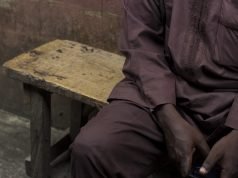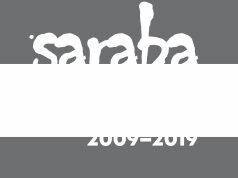By Kenechi Uzor—
We don’t have it yet, but still, hurrah for the year, sometime in the future when we would.
An MFA Programme is an advanced degree in creative writing. Some Nigerians who know about it have argued over the essays and articles written on the relevance or non-relevance of MFA programmes in America.
It is no longer fretful that Nigerians can fight over matters that happen on the moon and events that happen in neighbouring Mars, etc. The more alien the matter, the more the caterwauling.
So yes, Nigerians argue on Social Media and in Freedom Park over the superfluity of American MFA programmes when we don’t have one. Have you not heard those panellists at our literary festivals talk about it? The Facebook literary giants and Twitter authors basking in likes, comments, and retweets over their opinions on MFA vs NYC or MFA vs POC? Not one of them ever suggested or wondered why we do not have an MFA programme or anything near it in any of the 147 universities in Nigeria. No school of advanced creative writing in a country of 170 million.
Is an MFA degree necessary? If someone puts a question like that out, it might cause Nigerians too much gall. They will detract this discourse by listing a few excellent writers who never went for an MFA programme. Certainly, writers without MFAs exist.
Still, writing is carpentry. There is always a difference between a self-taught carpenter and a formally educated one. There is a finesse that only very few can achieve without the oversight, the instruction of institutional or learned counsel.
Is the problem with the education, the educated, or the educator? Is the absence of an MFA programme in Nigeria a consequence of the quality of our education? Or is it with the educators? Who would teach in the MFA? Is it with the students? Are they ready to read?
All of the above.
A good number of Nigerian doctors spend almost 10 years studying Medicine in Nigerian universities.
Some Engineering students spend as much as 7 years poring over engine drawings and calculations.
Writing is a discipline with as much claim to study and the time for it. Perhaps writing requires more time not just to whet the craft’s edge, but for the development and expression of its ideas.
But Nigerian writing neophytes have no temples of study, no priest-guides. They chart their own courses, and navigate the dark seas of literary art with little help from the stars. Some never make it to shore. Those whose craft would have benefited greatly from a compass and sophistication paddle along on their own.
The absence of an institutional backing is part reason writing or writers in these parts have little honour or respect unless they win acclaim. The layman, even some writing neophytes, have an inkling of what it would take to become a Doctor, or an Engineer, but they do not understand what a writer has to study for. Because it is assumed that writing doesn’t require much, that anybody can be a writer. All that is required is WordPress, a smart phone, and they write away.
What is the Nigerian creative writer to read or do to improve his writing? Some have no other material except the few Nigerian books around them. But is this enough? It can’t be enough if they want to compete at the world level. Their counterparts abroad have thousands of books and a preponderance of MFA schools to aid them. 304, 912 books were published in America in 2013. Records couldn’t be found of books published in Nigeria same year, but in 1991, UNESCO put the total number of Nigerian published books at 1,314.
Few in our clime who have the wherewithal take their writing dreams abroad, to where quality is easier to come by. Some of these succeed, like others who flew out before them. But they get tagged as made-in-abroad writers, writers who pander to the west, writers who do not have the “authentic African experience.”
The Internet presents a Janus trait to the writing newbie. The instant endorsement it offers, often from those who aren’t authorities, congeal many talents at a spot where they erroneously think they have arrived. And yet there are excellent online writing journals and magazines where they could groom their craft if only they knew what to look for.
There is a prevalent view that bad writing isn’t the trouble with Nigerian literature, but that our literature suffers from a dearth of a reading culture. But is this one of those mantras, those doctrines that many have come to accept as true without debate?
Do literate Nigerians really not read?
Memory and reflection proves that to be untrue, for I remember how my friends and I queued up in the 90’s to purchase Better Lover, and Hints magazines. How we trekked miles to get a copy of Pacesetters, or any copy from the African Writers Series. Books were passed from class to class, school to school, till the books succumbed to the effect of much reading. And this was in northern Nigeria where reading culture is considered much more woeful than in other parts of the county.
True, Better Lover magazines are no more, Hints is defunct, and Pacesetters are out of print, but their demise were not caused by a lack of readership. Were they brought down by lack of content or by paucity of distribution?
Today, a large percentage of Internet users read online. According to Nigerian Communications Commission, 87 million Nigerians use the Internet. Nigerians can’t get enough of sport papers. There is always a mass of people at newspaper vendors. Nigerian young women scrounge for romance novels. Piles of cheap, pirated books are sold at busy street corners and in traffic, but most of these are foreign. Nigerians are reading, they are just not reading much of Nigerian literature.
Does Nigerian literature lack books Nigerians really want to read?
Those who want to read horror would have a hard time finding a Nigerian writer of that genre. Where are Nigerian science-fiction novels? I read humourists, Mark Twain, Perelman, and Wodehouse. All dead. All white men. I suppose many Nigerians would read a memoir by 2Face Idibia, say, or a biography of JJ. Okocha, historical fiction based on the Hausa empires, Benin Kingdom. Romance novels set in Nigerian Universities would sell widely. But who is writing these? Where are the distributors?
What we really need is a writing culture. And not just mere writing, but quality writing able to engage the Nigerian mind and interest.
Perhaps it doesn’t seem like we have a problem with writing because we have these few A-list writers, these sparks that draw attention from our forest of wet wood. It is like a secondary school where most failed the O-levels except one student who made all As. The principal bragged about him, the state governor sent some old books in recognition. Hurrah! 200 barely passed, but it is a great school, a classmate’s result was stellar, the best in the state.
Chimamanda Adichie, Teju Cole, Ben Okri, Wole Soyinka, Chigozie Obioma, few others: these are world acclaimed Nigerian writers. It is difficult to see past these sparks while evaluating Nigerian literature.
But that we can count the number of our “great” writers on fingers out of the beach sand number of our country should worry those who care.
170 million people; 10 to 100 literary sparks.
Most of our acclaimed writers were made abroad. Much more quality writers would have been made in Nigeria if we had an MFA school.
The past few years have seen some encouraging changes. There’s been a number of creative writing workshops, including Farafina Trust’s led by Chimamanda Adichie. The Farafina Trust workshop is usually for ten days; it isn’t an MFA. John Hopkins MFA programme, which Adichie attended, is a two years stretch degree.
We have 147 accredited universities in Nigeria. Surely a couple of them could have MFA degree departments. Who would teach? We have a good number of creative writing professors teaching in some of the 300 MFA programmes in America—more than twice the number of Universities in Nigeria. As for the students, there are hundreds passionate enough about writing to pay any amount to attend a Nigerian MFA degree programme.
Is there a particular reason Nigeria has no MFA degree programme? Or is it just another of those mystifying Nigerian elements, perhaps like the conundrum of our power supply that, for decades, defied explanation for its dismal state?
Enlightenment has finally demystified the Nigerian power sector, bringing a marked improvement in electricity supply. Nigerian literature is undergoing its own renaissance, and with this increased interest, it is very probable that MFA degree programmes, writers’ residencies and fellowships will soon attend our shores, bringing an improvement in the quality of our Literature.
Photo: Helon Habila by Lutz Berger. Helon Habila is a professor of Creative Writing at George Mason University in Fairfax, Virginia.
Kenechi Uzor is web editor of Saraba Magazine.

































[…] webeditor of Saraba Magazine is Kenechi Uzor. This editor argues about a advanced course in creative writing at a Nigerian university. A course like that is not […]
yeah yeah, read my book http://lifelib.blogspot.com.ng/2015/01/three-sisters.html 🙂
but yeah, cool questions. there is room for specialized education all over the country in different fields.
[…] Her first book was the acclaimed story collection, Happiness, Like Water. Her stories and essays have been published in all the right places: Tin House, The New Yorker, Granta, and AGNI. She has an MFA from the Iowa writer’s Workshop. (Read my essay on why Nigeria needs an MFA degree programme). […]
Comments are closed.